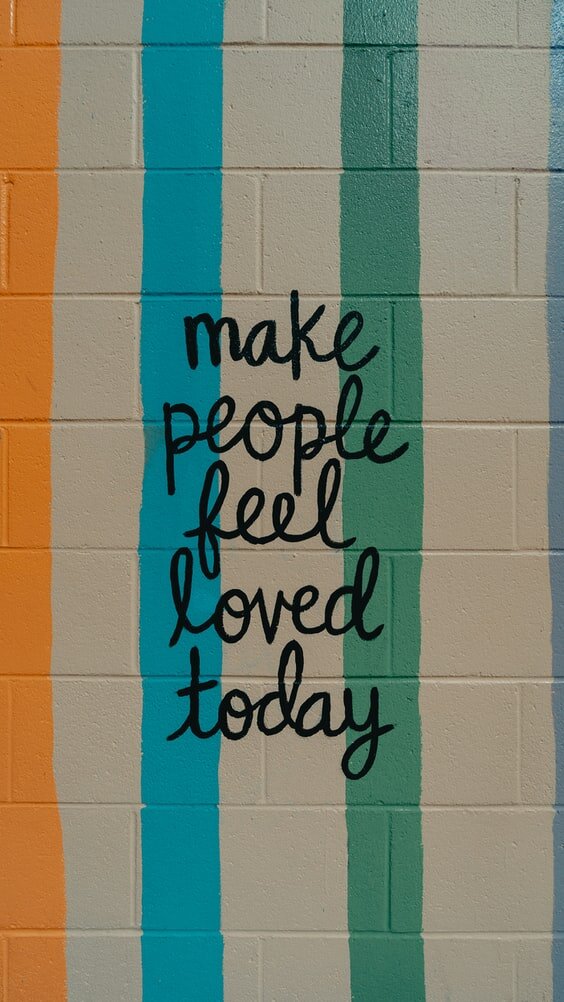TRY A LITTLE KINDNESS
Kindness is the state of caring about other people’s well-being and taking action to help make other people’s lives better and happier.
It is a social glue that allows us to connect with others and build meaningful relationships with them. When someone does something kind for us, we like them more and we want to cooperate with them more. When we do something kind for someone, we earn their trust and respect, and we feel better about ourselves for being a good person.
Kindness is a reciprocal relationship. It becomes a cycle that strengthens our bond with friends, family, lovers, coworkers, and acquaintances. The more we practice kindness, the easier it is.
Every thought and action we do fires neurons in our brain. The more these neural pathways are fired, the easier it becomes to activate them. So the more we repeat acts of kindness, the easier it is to do them in the future.
Here are scientifically supported ways we can increase our kindness toward others.
Get your intentions right
Having good intentions is the first step toward being kinder toward others and building positive relationships with them. Research on good intentions has shown that when people know we are acting with their best interests at heart, this improves their experiences with us and makes them more pleasurable.
Cultivating the right attitude about others is often necessary before we start acting in kinder ways. If we approach the world with a cynical mindset, people are going to notice that and not want to be around us.
But if we approach the world with a positive and optimistic mindset, people are going to be attracted to that and want to spend more time with us.
In a small but significant way, people with good intentions make the world a better place.
See from the other person’s perspective
The practice of perspective-taking is a scientifically supported technique that we can use to increase empathy and kindness toward others.
The aim of this technique is to imagine ourselves experiencing a situation from another person’s perspective. How would you feel if you were them? What thoughts would you have? How would you act if you were in their shoes?
By answering these questions, we can gain a deeper understanding of why people act the way they do. Perspective-taking helps us step out of our narrow mind and see the world through the lens of another conscious being.
And by understanding people better we learn to interact with them better, be nicer to them, and even forgive them when they do things we normally wouldn’t understand.
Practice kindness in small doses
Kindness starts as a thought but ends as an action.
Acting kindly toward others is the only real way to let people know we care about them and their happiness. Without action, kindness just lives in our minds but never touches the real world.
Being kind to others doesn’t have to be complex or fancy. Sometimes the simplest acts of kindness are seen as the most sincere, such as holding the door, helping with directions, saying “please” and “thank you,” or even just a smile.
Start there and then build to acts of kindness that take a little more effort. Here is a list of 30 acts of kindness you can try out – have fun with it and make it into a 30 day challenge.
Kindness is like a muscle, the more we exercise it the better we are at it.
Improve the well-being of yourself and others with 30 acts of kindness.
Give a genuine compliment.
Tell someone you love them.
Smile at everyone you see.
Do something nice for a stranger.
Donate to a charity you believe in.
Volunteer in a local community organization.
Plan a fun social event for friends, family, and/or coworkers.
Encourage someone to pursue one of their goals.
Forgive someone who hurt you.
Apologize for your mistakes.
Catch up with an old friend.
Be a good listener when someone needs to vent.
Create a mix CD for a friend.
Dedicate a song or poem to someone.
Say “please” and “thank you” – and really mean it.
Leave a generous tip for a friendly waiter/waitress.
Pass along a great book you’ve just finished reading.
Print out inspirational quotes and post them around town.
Deliver fresh-baked goods to the local fire department or police department.
Give blood.
Mow a neighbour’s lawn.
Tell someone you appreciate them.
Leave a positive comment on a blog or website you enjoy.
Spend more time with your kids.
Pay the toll for the car behind you.
Organize a local event.
Create a “Free Hugs” stand.
Do something nice for yourself.
Pause when you get angry or frustrated
An important part of being a kind person is knowing how to control our anger and frustration.
It’s natural for us to occasionally be upset with other people; however, we should try our best to channel these emotions in constructive ways, not lash out, yell, insult, or be aggressive.
One recommended technique to overcome these impulsive emotions is called a STOP Meditation. It allows us to take a short pause and reflect on our thoughts and feelings before acting on them.
Often by creating a “pause” between our thoughts and actions, we can re-evaluate what we’re doing in the moment and change our direction if we find ourselves wanting to do something stupid or destructive.
So when someone pisses you off and you want to yell at them, take a mental “step back” – breathe a few deep breaths – and then focus back on the situation with a clear mind.
Spread the gift of kindness and have fun with it.




